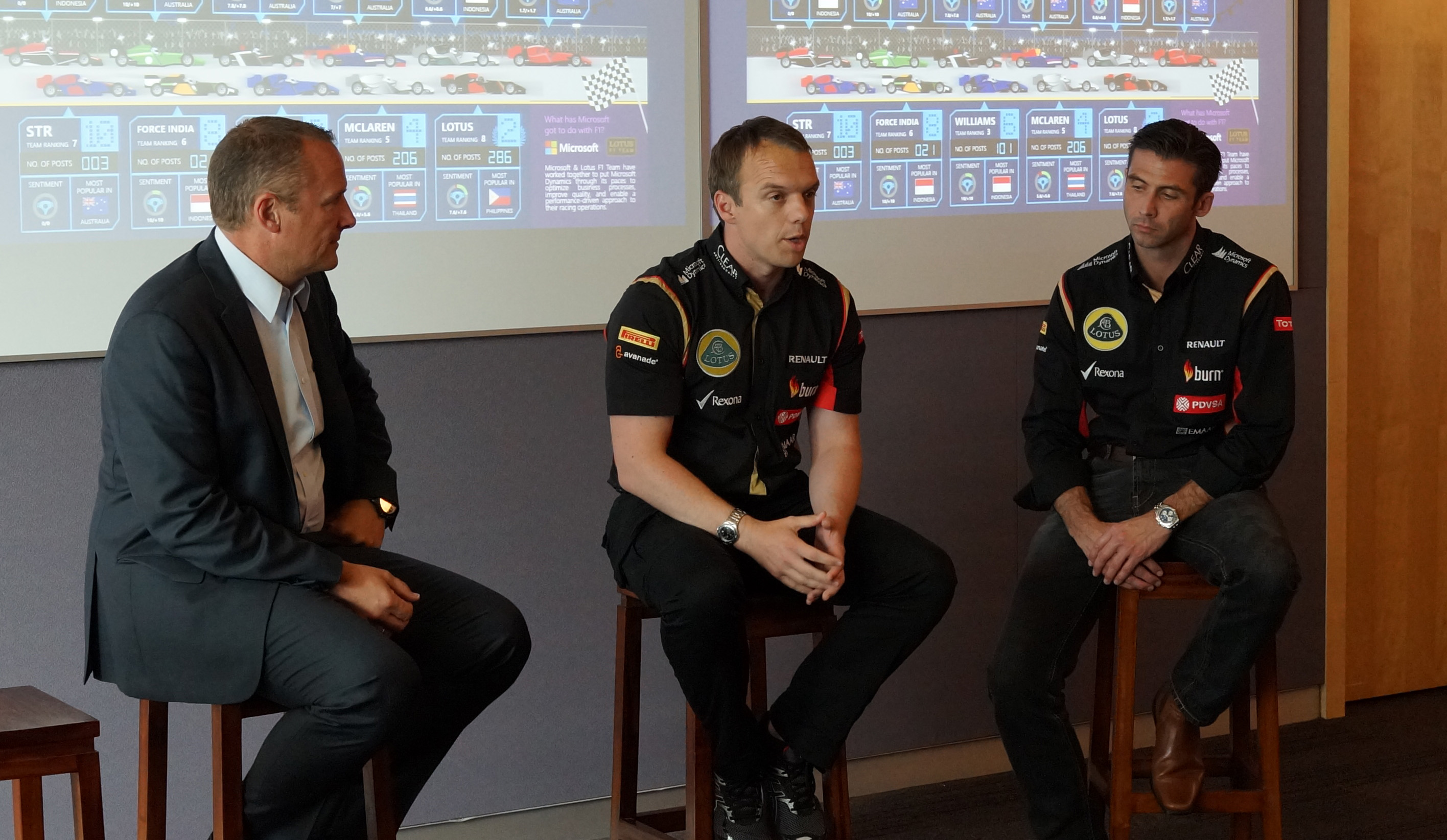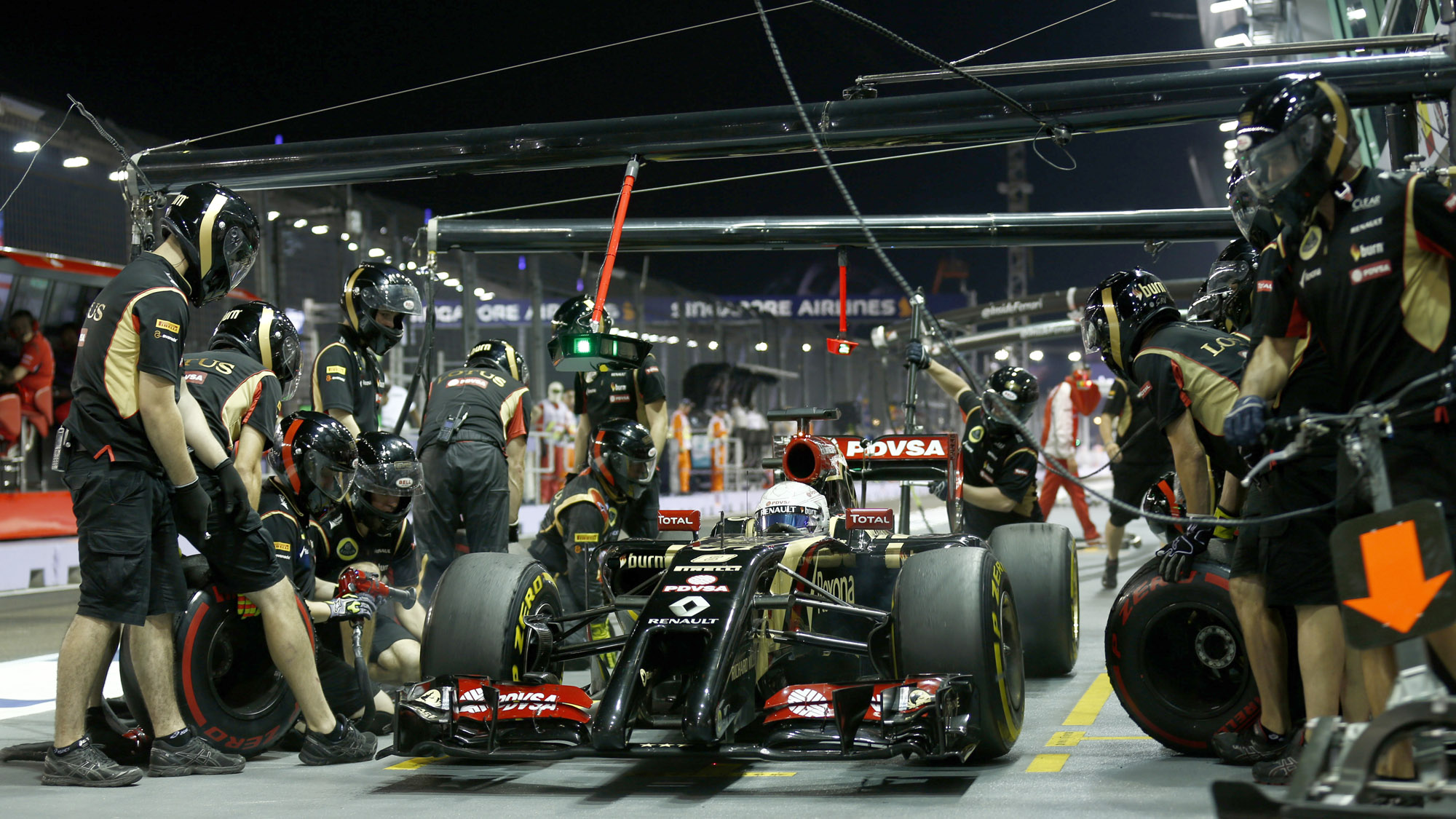The successful collaboration between Lotus F1 Team and Microsoft Dynamics is a good example of how organizations can gain a competitive edge through the smart adoption of technology. Christian Pedersen, General Manager of Microsoft Dynamics, shares three takeaways from the partnership which can benefit your business.
In today’s mobile-first and cloud-first world, technology is often seen as the modern-day ‘sling shot’ that businesses can use to take down the Goliaths of the industry. This is perhaps most evident in the ultra-competitive world of Formula 1™ (F1) racing — the most technology-driven sport on the planet, and one of the most-watched sports annually. Everything is state-of-the-art, from space-age materials used to construct car parts to advanced software deployed to manufacture them.
However, not every team has deep pockets like Ferrari, Mercedes and Red Bull. Smaller teams often have to rely on smarter use of technology to increase efficiencies to help even the odds in the fight for a place on the podium. Lotus F1 Team is one such example.
Since 2012, the team has embarked on a business transformation journey with Microsoft Dynamics to integrate and fine-tune every aspect of its business. This includes end-to-end integration of systems and processes, from analysis of track-side data and manufacturing/procurement of car parts to managing of financial workflow.

Here are three things businesses can learn from the technology-driven transformation partnership between the Lotus F1 racing team and Microsoft.
1. Simplicity
For most organizations, it’s about getting the job done and technology can’t be in the way. It is not about what hardware or software solutions they need to deploy, but rather how they can simplify IT systems and usage. In an increasingly complex world, simplicity is one of the biggest challenges many organizations face while also being one of the key foundations for transformation, especially when faced with the build-up of legacy systems. For Lotus F1 Team, the introduction of Microsoft’s Enterprise Class ERP solution, Dynamics AX, in the finance, purchasing, HR and store departments helped build and standardize on both a simple set of business processes and a familiar, easy to manage IT infrastructure. Having one common platform makes it easier for people to use the technology which results in greater productivity without extensive training. Similarly, Microsoft Dynamics CRM provides a way for Lotus F1 Team to manage and interact with sponsors and partners, all from a single integrated set of applications.
2. Speed
Speed defines this digital world. All business leaders know about the speed of innovation from MBA classrooms, but most do not know how to achieve it. Lotus F1 Team relies on software technology to optimize and speed up processes while improving collaboration. This is achieved in areas as diverse as precision manufacturing, data analysis, and global team communications. For instance, in a time-sensitive environment like Formula 1, the success of the team is dependent on how fast improvements can be delivered to the car after the insights and analysis are gathered from the prior race. This requires redesigning, modelling, testing and manufacturing new parts for the car that can improve things like aerodynamics often for unique conditions of particular race tracks. In the past, much of this had to be done leveraging on memory and intuition based on years of experience across the members of the team. Having one common tool that all the manufacturing and production planning teams use can significantly help to streamline the process of rapid manufacturing changes on a daily basis. Microsoft Dynamics institutionalizes intuition.
3. Agility
In this digital age, agility of brands in engaging audiences on multiple channels is paramount to remaining relevant and competitive. For Lotus F1 Team, it is about empowering its people with the right tools to analyze data from race performance, R&D, operations and even customer management, and to respond quickly from anywhere and on any device. Dynamics CRM now includes Social Listening tools that enable the team to understand the latest buzz in the market and how they can better engage local fans on social and digital platforms. With this in place, Lotus F1 Team can more effectively tweak their audience engagement strategies at every stop on the global race calendar (click here to see an infographic of the social buzz from F1 fans, tracked via the Microsoft CRM Social Listening tool).
Ultimately, transformation can happen only if CIOs are committed to orchestrate their people, processes and technology to better serve customers in the hyper-connected world that we live in today. Lotus F1 Team has proven that technology can accelerate innovation and competitiveness on the race track – it makes sense that technology can accelerate transformation for businesses of all sizes around the world.





